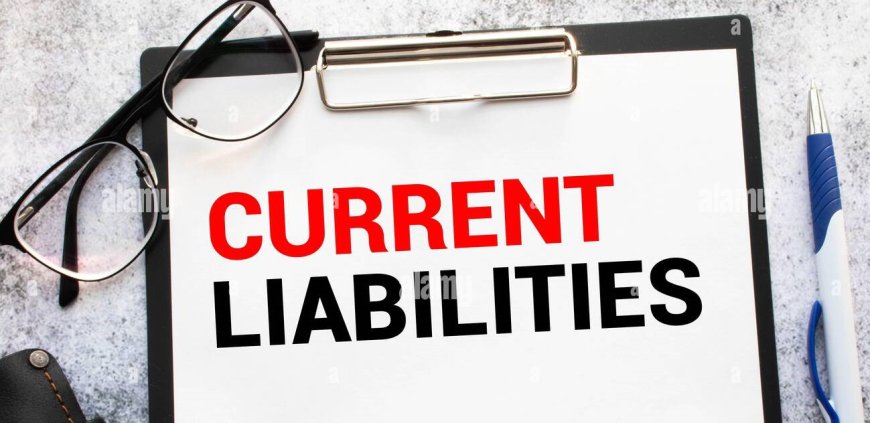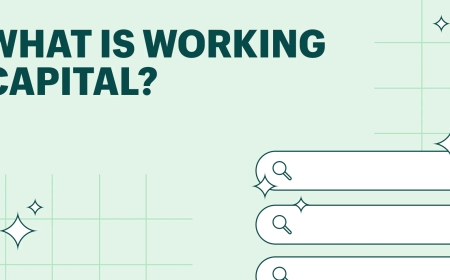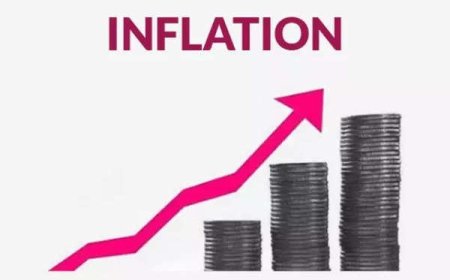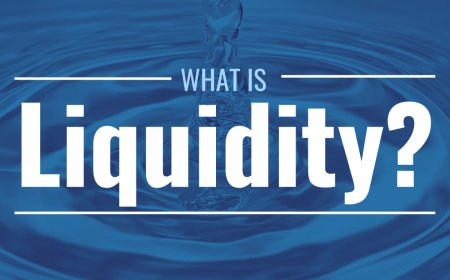INTRODUCTION TO CURRENT LIABILITIES FOR KIDS AND ADULTS

CURRENT LIANBILITY
Current liabilities are the bills and debts that a person or a business needs to pay off quickly, usually within a year.Current liabilities are like the tasks on a to-do list that need to be completed quickly. They are the bills and debts that have a deadline, and we have to pay them within a year.
FORMULA:
Current Liability = Accounts Payable + Short-term Loans + Accrued Expenses + Other Current Liabilities
i.e; Money you owe to suppliers or vendors: If you bought things or used services but haven't paid for them yet, you owe money to the people or businesses you got them from. This is called accounts payable.
Short-term loans you have taken: If you borrowed money for a short period, like from a bank or a friend, you need to include that amount.
Expenses you haven't paid yet: Sometimes, you have used something or received a service, but you haven't paid for it yet. For example, if you got a bill for electricity or rent but haven't paid it, that money becomes an accrued expense.
Other debts to be paid within a year: This includes any other money you owe that needs to be paid off within the next 12 months. It could be things like credit card bills or any other loans you have taken.
EXAMPLE: (For Kids)
1) Pending Pocket Money:
Explanation: Pocket money is the amount of money that parents give to their kids regularly for personal expenses. If your parents haven't given you the pocket money they promised, it becomes a current liability. They owe you that money, and you are waiting for them to pay it. It's like a small debt that will be settled when your parents give you the pending pocket money. You can remind them politely about it and discuss when you can expect to receive it.
2) Pending Library Book Return:
Explanation: Libraries allow us to borrow books for a certain period. If you borrowed a book from the school or public library but haven't returned it yet, it becomes a current liability. The book is something you borrowed, and you have the responsibility to give it back within the specified time. Until you return the book, it remains a pending liability. It's important to locate the book and return it to the library promptly so that other kids can have the chance to read and enjoy it.
Unpaid School Fees:
3) Explanation: School fees are the amount of money that parents need to pay to the school for their child's education. If your parents have not yet paid your school fees for the current month or term, it becomes a current liability. The school fees are an obligation or debt that your parents need to fulfill. It's important to remind your parents about the unpaid fees so that they can arrange to pay it to the school as soon as possible.
4) Unpaid Tiffin or Lunch Money:
Explanation: Tiffin or lunch money is the amount of money that your parents give you to buy food during school hours. If your parents have given you the money, but you haven't used it yet, it becomes a current liability. The money is owed to you because you have the responsibility to use it to buy your lunch. Until you use that money to buy your lunch, it remains an unpaid liability. Make sure to use the money for its intended purpose and inform your parents if there are any changes in your lunch plans.
5) Money Borrowed from a Friend:
Explanation: Sometimes, you might borrow some money from a friend to buy something, like a snack or a small toy. That borrowed money becomes a current liability because you owe it to your friend. You have the responsibility to repay the money to your friend. It's important to keep track of the borrowed amount and plan to return it as soon as possible. Being responsible and returning the borrowed money promptly helps maintain good relationships with your friends.
EXAMPLE: (For Adults)
1) Pending Electricity Bill Payment:
Electricity to power their homes, including lights, appliances, and other electrical devices.
The electricity company measures the amount of electricity used and sends a bill to the adults.
If they have not paid the bill by the due date, it becomes a pending liability.
Until the bill is paid, it remains an unpaid liability, and the adults are responsible for settling the amount owed to the electricity company.
it should ensure that they pay their electricity bills on time to avoid any inconveniences or interruptions in the power supply at home.
2) Unpaid Mobile Phone Bill:
Adults have mobile phones that they use for communication and accessing the internet.
The mobile phone service provider offers various services like calls, messages, and data usage.
At the end of each month, the service provider sends a bill to the adults for the services used.
If the adults have not paid the bill by the due date, it becomes an unpaid liability.
Until the bill is paid, it remains a current liability, and the adults are responsible for settling the amount owed to the service provider.
Adults should make it a priority to pay their mobile phone bills on time to continue enjoying uninterrupted mobile services.
3) Outstanding Credit Card Balance:
credit cards that can use to make purchases without immediate cash payment.
When a purchase is made using a credit card, it adds up to the outstanding balance owed to the credit card company.
At the end of each billing cycle, the credit card company sends a statement with the total balance due.
If the adults have not paid the balance in full by the due date, it becomes an outstanding credit card balance and a current liability.
What's Your Reaction?
 Like
0
Like
0
 Dislike
0
Dislike
0
 Love
0
Love
0
 Funny
0
Funny
0
 Angry
0
Angry
0
 Sad
0
Sad
0
 Wow
0
Wow
0







































































